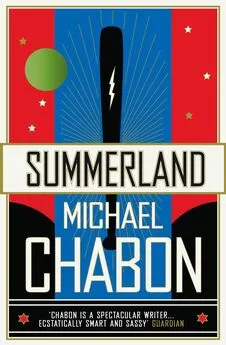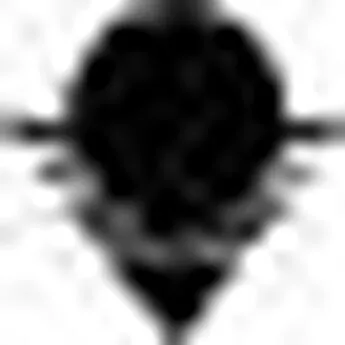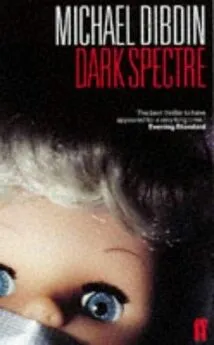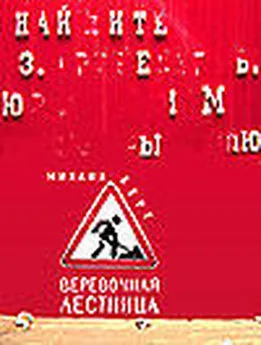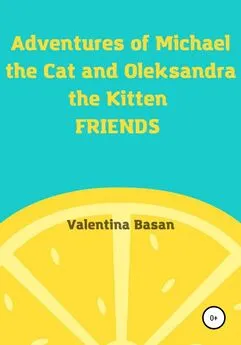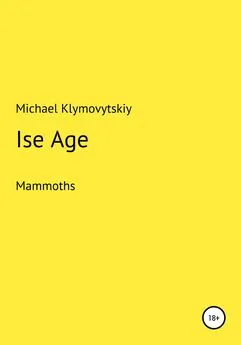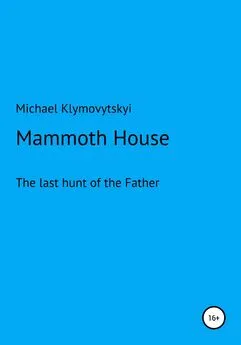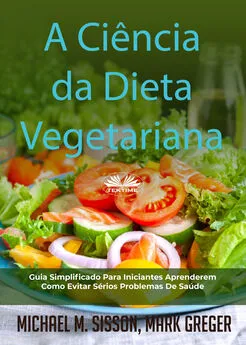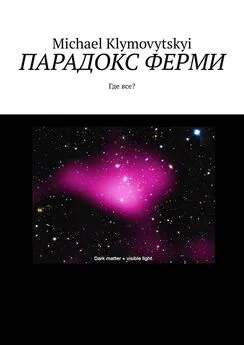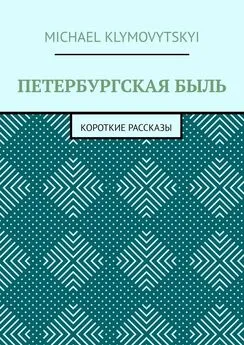Michael Chabon - Summerland
- Название:Summerland
- Автор:
- Жанр:
- Издательство:неизвестно
- Год:неизвестен
- ISBN:нет данных
- Рейтинг:
- Избранное:Добавить в избранное
-
Отзывы:
-
Ваша оценка:
Michael Chabon - Summerland краткое содержание
Summerland - читать онлайн бесплатно ознакомительный отрывок
Интервал:
Закладка:
“OK,” Ethan said.
“Now, let’s say the tree is invisible. Immaterial. You can’t touch it.”
“OK.”
“The only part of it that’s visible, that’s the leaves.”
“The leaves are visible.”
“The leaves of this enormous tree, those are the million million places where life lives and things happen and stories and creatures come and go.”
Ethan thought this over.
“So Clam Island is like a leaf?”
“It isn’t like a leaf. It is a leaf. This tree is not some fancy metaphor, piglet. It’s real . It’s there. It’s holding us all up right now, you and me and Bulgaria and Pluto and everything else. Just because something is invisible and immaterial doesn’t mean it isn’t really there.”
“Sorry,” Ethan said.
“Now. Those four limbs, the four great limbs, each with its great tangle of branches and leaves – those are the four Worlds.”
“There are four Worlds.”
“And all the twigs and boughs are the myriad ways among the leaves, the paths and roads, the rambles and routes among the stars. But there are some of us who can, you know, leap, from leaf to leaf, and branch to branch. Shadowtails, such creatures are called, and I myself am one of them. When you travel along a branch, that’s called scampering. We’re doing it right now. You can’t go very far – it’s too tiring – but you can go very quickly .”
The werefox scrabbled up a low bank, in a spray of dead leaves and pebbles, then leapt through a blackberry bramble headfirst. Ethan had no choice but to follow. It was briefly very dark inside the bramble, and cold, too, a dank chill, as if they had leapt not through a blackberry bramble but into the mouth of a deep cave. There was a soft tinkling like the sound of the wind through icy pine needles. Then somehow or other he landed, without a scratch on him, at the edge of a familiar meadow, beyond which lay the white mystery of the birches.
“Hey. How’d we—? Is this—?”
They had been walking for a few minutes at most. Now, Ethan had done a fair amount of ranging alone through the woods and along the gravel roads of Clam Island. But he had never considered trying to walk all the way from his house to the Tooth. It was just too far. You would have to walk, he would have said, for more than an hour. And yet here they were, or seemed to be. The broad sunny meadow, the birch trees, the brackish green Sound that he could smell just beyond them.
“Now, there’s one last thing I want you to imagine,” Cutbelly said. “And it’s that because of all the crazy bends and hairpin turns, because of all the zigs and zags in the limbs and boughs and branches of this Tree I’m telling you about, it so happens that two leaves can end up lying right beside each other, separated by what amounts, for a gifted shadowtail like myself, to a single bound. And yet, if you were to follow your way back along the twigs and branches, back to the trunk, you would find that these two leaves actually grow from two separate great limbs of the Tree. Though near neighbours, they lie in two totally different Worlds. Can you picture that, piglet? Can you see how the four Worlds are all tangled up in each other like the forking, twisting branches of a tree?”
“You’re saying you can scamper from one world to another?”
“No, I can leap. And take you with me into the bargain,” said the werefox. “And the name of this World is the Summerlands.”
It was the Summerland Ethan knew; yet it was different, too. The plain metal bleachers and chain fences of Jock MacDougal Field at the far side of the meadow had been replaced with an elegant structure, at once sturdy and ornate, carved from a pale yellow, almost white substance that Ethan could not at first identify. It was a neat little box of a building, with long arched galleries through which he could see that it was open to the sky. It looked a little like the Taj Mahal, and a little like a big old Florida hotel, towers and grandstands and pavilions. There was an onion-shaped turret at each corner, and along the tops of the galleries rows of long snaky pennants snapped in the breeze.
“It’s a ballpark,” Ethan said. “A tiny one.” It was no bigger than a Burger King restaurant.
“The Neighbours are not a large people,” Cutbelly said. “As you will soon see.”
“The Neighbours,” Ethan said. “Are they human?”
“The Neighbours? No, sir. Not in the least. A separate creation, same as me.”
“They aren’t aliens ?” Ethan was looking around for possible explanations for Cutbelly. It had occurred to him that his new friend might have evolved on some distant world of grass where it might behove you to work your way up from something like a fox.
“And what is an alien, tell me that?”
“A creature from another world. You know, from outer space.”
“As I thought I had made clear, there are but four Worlds,” Cutbelly said. “Though one of them, I should mention, is lost to us for ever. Sealed off by a trick of Coyote. Yours, including everything that you and your kind call ‘the universe,’ is just one of the three remaining ones, though if I may say, it’s my personal favourite of the lot. Just now you and I are crossing into another one, the Summerlands. And this is where the Neighbours most definitely dwell. Now as I was saying, they are not very grand. In fact they are quite literally Little People.”
“ Little People ?” Ethan said. “Wait. OK. The Neighbours. They are. Aren’t they? They’re fair—”
“Fair Folk !” Cutbelly cut him off. “Yes, indeed, that is an old name for them. Ferishers is the name they give themselves, or rather the name that they’ll consent to have you call them.”
“And they play baseball.”
“Endlessly.” With a roll of his eyes, Cutbelly threw himself down in the grass and weeds, of which he began gathering great handfuls and stuffing them into the bowl of his pipe.
“In that little building over there?”
“Thunderbird Park,” Cutbelly said. “‘The Jewel of the Chinook League’. When there was a league. It’s a drafty old barracks, if you ask me.”
“What is it… what is it, uh, made of?” Even as he said it the thought strayed once more into his mind: human bones .
“Ivory,” Cutbelly said.
“Whale?”
“Not whale.”
“Walrus?”
“Nor walrus, besides.”
“ Elephant? ”
“And where would anyone get hold of that much elephant ivory around here? No, that ballpark, piglet, was carved from giant’s ivory. From the bones of Skookum John, who made the mistake of trying to raid this neighbourhood one day back about 1743.” He sighed, and took a contemplative puff on his pipe. “Ah, me,” he said. “Might as well have a seat, piglet. They know we’re here. A moment will bring them along.”
Ethan sat down beside Cutbelly in the grassy meadow. The sun was high and the tall green grass was vibrant with bees. It might have been the loveliest summer day in the history of Ethan Feld. The birch forest was loud with birds. The smell of smoke from Cutbelly’s pipe was pungent but not unpleasant. Ethan suddenly remembered a similar afternoon, bees and blue skies, long ago… somewhere… at the edge of a country road, beside a grassy bank that ran down to a stagnant pond. It must have been at his grandparents’ house, in South Fallsburg, New York, which he had heard his mother speak of but, until now, never remembered. The country house had been sold when he was still a very little boy. His mother crouched down behind him, one slender hand on his shoulder. With the other she pointed to the murky black water of the pond. There, hovering just a few inches above the water, hung a tiny white woman, her hummingbird wings all a-whir.
“That was a pixie, actually,” Cutbelly said, sounding more melancholy than ever. This time Ethan noticed that his thoughts had been read. “And you were lucky to see one. There aren’t too many of them left. They got the grey crinkles worse than any of them.”
“The grey crinkles?”
In the trees to their left there was a sudden flutter, like the rustle of a curtain or a flag. A huge crow took to the sky with a raucous laugh and what Ethan would have sworn was a backwards glance at him and Cutbelly.
“It’s a great plague of the Summerlands,” Cutbelly said, his bright black eyes watching the crow as it flew off. “More of Coyote’s mischief. It’s horrible to see.”
Cutbelly puffed dourly on his pipe. It was clear that he didn’t care to say anything more on the sad subject of the vanishing pixies and the dreadful plague that had carried them off.
As is so often the case when one is in the presence of a truly gifted teacher, Cutbelly’s explanations had left Ethan with so many questions that he didn’t know where to begin. What happened when you got the grey crinkles? What did coyotes have to do with it?
“What’s the difference?” Ethan began. “I mean, between a pixie and a fair—a ferisher?”
Cutbelly clambered abruptly to his feet. The plug of charred weeds tumbled from the bowl of his shinbone pipe, and Ethan’s nostrils were soon tinged by the smell of burning fur.
“See for yourself,” Cutbelly said. “Hear for yourself, too.”
They travelled, like the ball clubs of old, in buses – only these buses could fly. They came tearing out of the birch forest in ragged formation, seven of them, trying to keep abreast of one another but continually dashing ahead of or dropping behind. They were shaped more or less like the Greyhound coaches you saw in old movies, at once bulbous and sleek. But they were much smaller than an ordinary bus – no bigger than an old station wagon. They were made not of steel or aluminium, but of gold wire, striped fabric, some strange, pearly silver glass, and all kinds of other substances and objects – clamshells and feathers, marbles and pennies and pencils. They were wild buses, somehow, the small, savage cousins of their domesticated kin. They dipped and rolled and swooped along the grass, bearing down on Ethan and Cutbelly. As they drew nearer, Ethan could hear the sound of laughter and curses and shouts. They were having a race, flying across the great sunny meadow in their ramshackle golden buses.
“Everything is a race or a contest, with the Neighbours,” Cutbelly said, sounding fairly fed up with them. “Somebody always has to lose, or they aren’t happy.”
At last one of the buses broke free of the pack for good. It shot across the diminishing space between it and Ethan’s head and then came, with a terrific screech of tyres against thin air, to a stop. There was a loud cheer from within, and then the other buses came squealing up. Immediately six or seven dozen very small people piled out of the doors and began shouting and arguing and trying to drown each other out. They snatched leather purses from their belts and waved them around. After a moment great stacks of gold coins began to change hands. At last most of them looked pleased or at least satisfied with the outcome of the race, and turned to Cutbelly and Ethan, jostling and elbowing one another to get a better look at the intruder.
Ethan stared back. They looked like a bunch of tiny Indians out of some old film or museum diorama. They were dressed in trousers and dresses of skin, dyed and beaded. They were laden with shells and feathers and glinting bits of gold. Their skins were the colour of cherry wood. Some were armed with bows and quivers of arrows. The idea of a lost tribe of pygmy Indians living in the woods of Clam Island made a brief appearance in Ethan’s mind before being laughed right out again. These creatures could never be mistaken for human. For one thing, though they were clearly adults, women with breasts, men with beards and moustaches, none stood much taller than a human infant. Their eyes were the colour of cider and beer, the pupils rectangular black slits like the pupils of goats. But it was more than their size or the strangeness of their pale gold eyes. Looking at them – just looking at them – raised the hair on the back of Ethan’s neck. On this dazzling summer day, he shuddered, from the inside out, as if he had a fever. His jaw trembled and he heard his teeth clicking against each other. His toes in his sneakers curled and uncurled.
Читать дальшеИнтервал:
Закладка:
